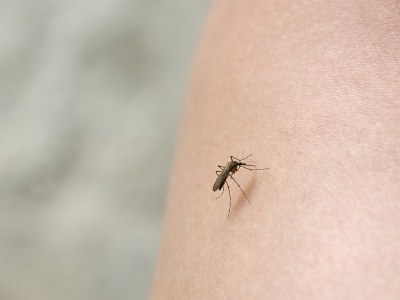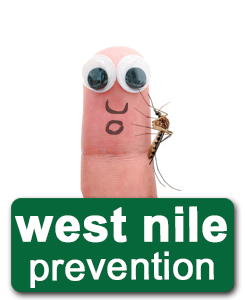How does West Nile Virus affect humans?
Humans get West Nile Virus (WNV) from the bite of an infected mosquito.1 The transmission cycle (how the virus is passed) begins when mosquitoes feed on the blood of an infected bird. Once a mosquito bites an infected bird, it becomes infected with WNV and could possibly transmit the virus to humans through a mosquito bite. Learn about how you can protect yourself from getting West Nile Virus by reading about prevention and personal protection.
What are the signs and symptoms of West Nile Virus?
Most people (70% to 80%) who are bitten by a mosquito infected with West Nile Virus (WNV) will have no symptoms at all.2 The Government of Canada2 indicates that when infection does cause mild illness (e.g. fever, headache, body aches, mild rash, swollen lymph glands), these symptoms will appear within two to 15 days after a person has been bitten by an infected mosquito. Symptoms change from person to person. A few people will experience more severe symptoms of West Nile Virus infection. In serious cases, West Nile Virus infection can affect the brain and spinal cord.
View the Government of Canda's web page for more information about signs and symptoms of West Nile Virus.
Can all mosquitoes transmit West Nile Virus?
A 'vector' is the term used to describe a mosquito species that can transmit (pass) disease through a mosquito bite. Not all mosquito species are vectors. A ‘non-vector’ or ‘nuisance mosquito’ cannot carry a disease, and therefore cannot transmit disease to humans. Vector mosquito species must first bite an infected bird or animal in order to become infected themselves and able to pass the disease on through a mosquito bite. In Ontario, there are 12 common mosquito ‘vectors’ that are able to transmit West Nile Virus.3

